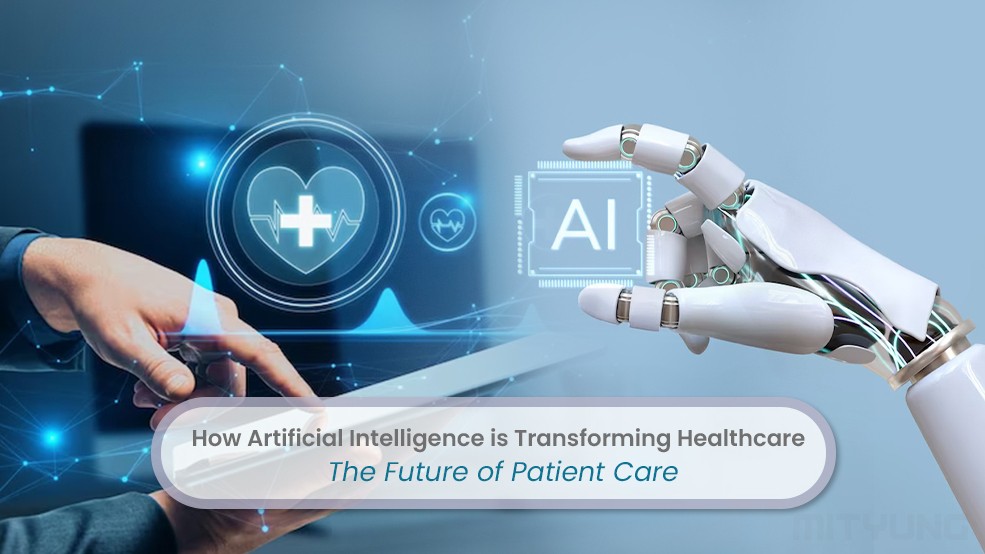How AI Is Revolutionizing Global Healthcare
Artificial intelligence is transforming health care with better patient care and diagnosis improvement as well as treatment management. Also, with further advancements in AI, the promising integration of these technologies into all health care systems in the world foretells a future where accessibility and affordability of health services might be enhanced, as well as the reliability of the services rendered.

According to research conducted by Harvard and McKinsey that healthcare innovations can also bring possible savings worth $360 billion per year through AI.
AI-powered systems from conventional healthcare systems is their capability to source millions of data entries in a way that yields meaningful conclusions whose correctness is beyond that of human ability. From diagnosing diseases to tracking patients and discovering drugs, AI has brought revolution in the practice of healthcare. This article describes the very important applications of AI in healthcare as well as its pros, cons, and promising future.
Applications of AI in Healthcare
1. Disease Diagnosis Technologies
Artificial intelligence technologies such as(BAN) Bayesian Networks and Artificial Neural Networks(ANN) wearied a revolution in disease diagnosis. The former are widely set on conditions like diabetes and other cardiovascular diseases while the latter is proved to be impactful in the prediction of Alzheimer's as well as dementia in the early stages. In fact, these set of technologies are currently able to process patient data to meet a diagnosis and quite often at an accuracy far beyond humans do so.
AI is able to process analogous instances rapidly by posing just the right inquiries and dispensing accurate advice that eases the patient's navigation.
For Example:
AI-based diagnostic tools that analyze X-ray, MRI, or CT scan images in order to indicate abnormalities with an accuracy close to 100% using specific sets of test datasets. Such advantages not only diagnosis accuracy but also savings in time associated with medical evaluations.
2. Telemedicine and Telehealth
Remote monitoring and consultation are being transformed by AI in telemedicine and telehealth. Patients who are remotely situated can benefit from quality healthcare services using wearable devices and AI-powered platforms. Such technologies measure vital signs, monitor patients for threatening, chronic conditions; and even pick up very subtle changes in health that humans may not carry out through observation.
AI-based smart wearables and sensors have much relevance for elderly care, where environmental and personal sensors can alert physicians even to minute changes in a patient’s condition. AI-driven chatbots, besides answering patients' queries, offer medical advice and help in scheduling appointments, thus making healthcare services more accessible.
3. Electronic Health Records (EHR)
Artificial intelligence has been a game-changer in the handling of complex electronic health records by the use of precise medical data processing. Utilizing natural language processing (NLP), AI can quickly figure out what information is important in EHRs for accuracy and reduce administrative troubles. Almost 80% of clinics across the globe are using EHR systems, making their workflows easier and providing better care for their clients.
AI is able to retrieve patient histories, and suggest individualized treatment plans. Additionally, it helps physicians update and preserve medical records, which improves the efficiency of the healthcare system.
4. Drug Discovery and Development
AI is transforming drug discovery by sifting through complex datasets to pinpoint drug candidates. Companies such as Pfizer are leveraging AI to create immuno-oncology drugs, significantly cutting down the time and expenses linked to conventional drug development methods. Tools like ChemGAN utilize genetic data and protein structures to forecast drug interactions and estimate their effectiveness, leading to quicker and more efficient treatment.

5. Robot Surgery
Robot assisted surgery with AI is unmatched in precision and control. These robots use real time data and 3D imaging to help surgeons do minimally invasive surgery which means shorter recovery time and better patient outcomes. AI robots also allow surgeons to plan their operations carefully reducing the risk of complications.
6. Enhancing Patient Safety
AI systems identify potential drug interactions and adverse effects, reducing the risks associated with polypharmacy. Tools like the FDA Adverse Event Reporting System and WHO databases leverage AI to analyze drug-related data, ensuring patient safety and improving medication management.
7. Improving Patient Experience
AI improves patient experience by reducing wait times, scheduling appointments and health specific alerts. Conversational AI like chatbots and virtual assistants do preliminary health assessments and guide patients to the right care. This is especially helpful in resource constrained healthcare environments so patients get timely and efficient care.
Future of AI in Healthcare
The future of AI in healthcare is bright with new technologies being developed to handle complex medical data. AI with telemedicine will further improve diagnostic accuracy, preventive care and personalized medicine. Eric Topol founder of the Scripps Research Translational Institute predicts significant improvements in medical practices through AI.
AI won’t replace clinicians but will enhance their abilities so they can focus on tasks that require empathy, creativity and complex decision making. For example AI will do administrative tasks like answering the phone and maintaining patient records so clinicians can focus on research and patient care.
A study of radiology students found 86% thought AI would help their work and 71% wanted to learn AI. That’s the growing awareness of AI in medical education and practice.
Conclusion
Artificial intelligence is changing healthcare by combining big data with intelligent deep learning. From disease diagnosis and drug discovery to telemedicine and robotic surgery AI is changing patient care. But to get AI into healthcare we need engineers and medical professionals to work together to make it ethical and effective.
As Andrew Ng said “AI is the new electricity”. Its ability to improve patient outcomes, reduce costs and streamline processes makes it essential for the future of healthcare. By embracing AI healthcare providers can create a system that is not only more efficient but more patient centric and that’s better for global health.

 Sana Irshad
Sana Irshad